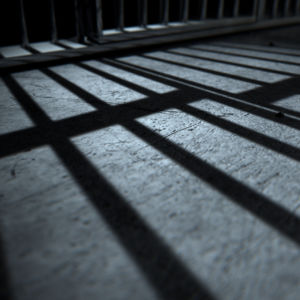There is apparently at least one campaign promise that Donald Trump intends to keep. As he said in a New Hampshire campaign video, “No drugs are coming in. We’re gonna build a wall. You know what I’m talking about. You have confidence in me. Believe me, I will solve the problem.”
The loose talk was bad enough then, but now includes apparent praise for Philippines President Rodrigo Duterte, whose own war on drugs features summary execution of both drug dealers and users. In just the last five months, more than 2,000 Filipinos have been killed in official police operations, and almost 4,000 have been killed in “extrajudicial” activity. For this, Trump congratulated Duterte for taking on the drug problem “the right way.”
Thus far, Trump’s actions match his rhetoric. He has tapped two bona fide Drug Warriors for high-level positions: Jeff Sessions for attorney general and John F. Kelly for secretary of Homeland Security.
Sessions has gone so far as to assert that “good people don’t smoke marijuana,” casually overlooking the fact that more Americans have smoked pot than have voted for Donald Trump. Kelly, for his part, testified before a Senate committee in April 2016 that drugs, including marijuana, represent an ongoing threat to the United States’ national security. Nowhere does he consider that ongoing prohibition is what makes the American market so attractive to drug cartels in the first place.
Trump seems hell-bent on reinvigorating some very tired thinking at the highest levels of U.S. law enforcement. But it’s time for a far more honest assessment.
That assessment begins with some common sense. Contrary to what drug warriors would have us believe, drugs don’t magically turn people into thieving, murderous psychopaths. The vast majority of drug use is only harmful because of the punishments the government metes out. About half of Americans have tried marijuana at some point, and almost 25 million have used some illicit drug within the last month alone.
If drugs were as dangerous as drug warriors claim, the United States would be a post-apocalyptic hellscape, and it simply isn’t. Experiments in marijuana legalization bear this out. A majority of the states have legalized marijuana in some form, and eight states have gone so far as to legalize or decriminalize marijuana for recreational use. Most typically seen? Peaceful people going about their business.
Yet we do have a very real drug problem. The problem is that the government makes more than 1.2 million arrests annually of people possessing a controlled substance. Even where there is no subsequent jail sentence, these arrests cost the victims thousands of dollars in legal fees, fines and court costs. And those who are arrested are harmed more by their own government than most of them ever would have been by the drugs from which they were “saved.”
Not only do people pay with their freedom, both in terms of prison sentences and denied choices, American taxpayers pay dearly too. The drug war costs taxpayers — at the state and federal levels — more than $45 billion annually in direct costs, and an additional $50 billion a year in tax revenues that would follow from legalization. Together, that means the drug war destroys or damages almost 1 million American lives each year at an ultimate annual cost of almost $100 billion. We have waged the war on drugs for 45 years now, and have precious little to show for it.
The incoming Trump administration is doubling down on the failed policies of the past. Instead of looking to Colorado, Washington, Oregon and the other five states that have surrendered the drug war, Trump is simply upping the ante.
And, as usual, Americans will pay. They will pay with their freedom, and they will pay with their money. And as is almost always the case in the war on drugs, it will all be for nothing.

